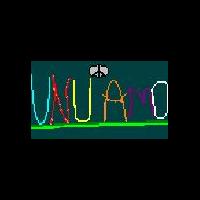讯息: 23
语言: English
k1attack (显示个人资料) 2010年3月13日下午10:20:06
k1attack (显示个人资料) 2010年3月13日下午10:21:56
Greyshades (显示个人资料) 2010年3月14日下午6:00:39

Become could be "xapa" (rendering-being) and different could be "wofe" (not-sameness).
What would replace the roots that we get rid of?
k1attack (显示个人资料) 2010年3月14日下午6:03:48
Greyshades:If we keep combining things, it's gonna turn into PunaIn that case "to change" (transitive) should be "xawofe" (make something not-same).
Become could be "xapa" (rendering-being) and different could be "wofe" (not-sameness).
What would replace the roots that we get rid of?
k1attack (显示个人资料) 2010年3月15日上午9:12:32
"Xo" (undergoing) is followed by passive verbs.
k1attack (显示个人资料) 2010年3月15日上午9:17:23
k1attack (显示个人资料) 2010年3月15日上午9:20:57
And I think I might create a Vuyamu page on Wikispaces.And I already made it, check it out!
jan aleksan (显示个人资料) 2010年3月15日下午12:43:40
ceigered (显示个人资料) 2010年3月15日下午1:22:55
jan aleksan:I didn't understand the usefulness and the logic behind mume (which).While it appears to be the equivalent of "tiu-cxi-tiu" I think it's actually the same as saying "tiu cxi, kiu ....". I wouldna have a clue though.
Roberto12 (显示个人资料) 2010年3月15日下午1:53:06
...but what are the names of the 100+ chemical elements, for example?
I guess they'll be of the form "chemical element one" (hydrogen), "chemical element two" (helium), etc. These are a bit long winded but okay, but what would molecules like methane and ammonia be called? The number of syllables will be unavoidably enormous!



